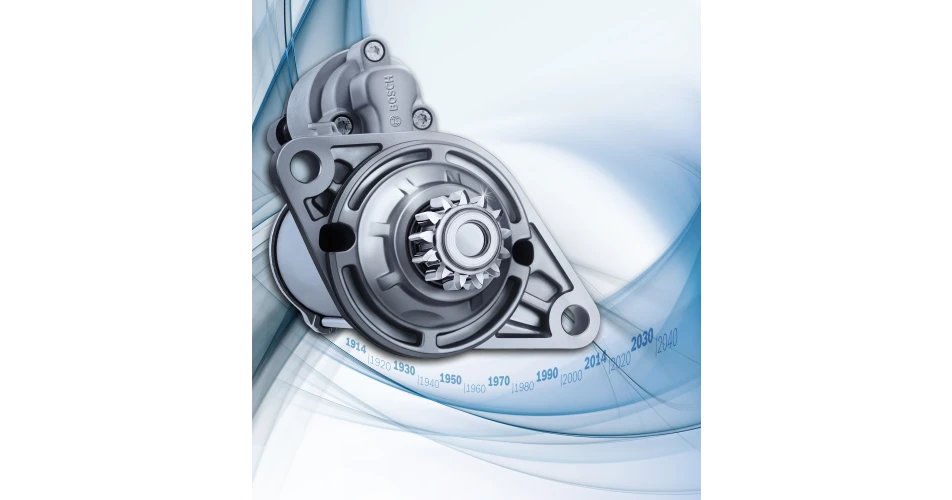Bosch is celebrating 100 years as a leading supplier of starter motors and is continuing to be an innovator in this rapidly changing product sector.
A century ago, in March 1914, Bosch produced its first electric starter motor for a car, an event that marked a giant leap forward in automotive electrification, making driving safer and more comfortable. Prior to this starting a vehicle manually with a crank handle was both difficult and dangerous.
It was Gottlob Honold, Bosch’s chief engineer, who had the idea of using an electric motor to start the engine. Other manufacturers had already attempted to do the same; while the results of their efforts worked relatively well, they were still unsuitable for everyday use and series production.
Initially, most of the demand for electric starter motors came from North America. This was reason enough for Robert Bosch to ramp up starter motor production at the company’s plant in Plainfield, New Jersey in 1914. Initially, sales of the new device remained modest; by 1927 Bosch had sold approximately 11,000 units. Then the starter motor gradually became more widely accepted, and nearly 550,000 were sold by 1933. But still it took decades for the crank handle to disappear completely from the world’s roads.
Throughout the 100 years Bosch has been at the cutting edge of starter motor development and this is particularly true in the area of start-stop technology. Series production of starter motors specifically tailored for use in start-stop systems began in 2007. To save fuel, this function stops the engine when the vehicle is at a standstill. As soon as the driver presses the accelerator pedal, the engine starts again, quickly, quietly, and automatically. In order to achieve further reductions in fuel consumption and CO2 emissions, Bosch engineers are working on gradually extending the scope of engine shutoff. In what is known as coasting mode, the engine will initially be shut off whenever the vehicle is coasting to a stop. Later, the coasting function will be extended to stop the engine even while on the open road, whenever the driver’s foot is no longer on the accelerator.
Today, Bosch offers a broad spectrum of robust, reliable starter motors for petrol and diesel engines, for passenger cars and commercial vehicles, supporting both 12 and 24 volt vehicle electrical systems. In addition to ease of integration, Bosch starter motors are lightweight, compact, and powerful, reducing fuel consumption and emissions. Bosch now manufactures more than twelve million starter motors every year, and these are installed in at least one in every five newly manufactured vehicles worldwide.
